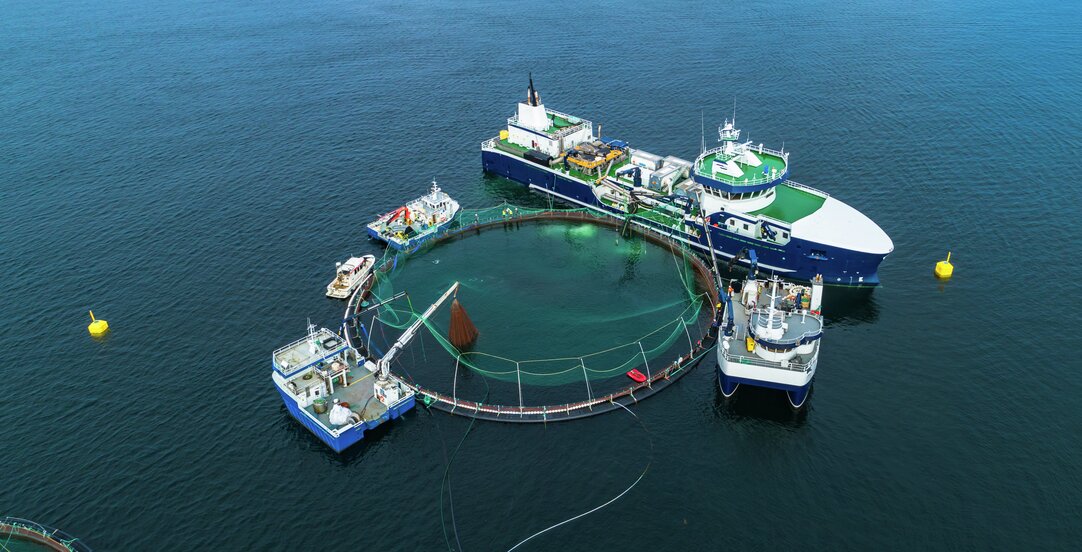Using well-boats in Norwegian aquaculture – a complicated legislative framework

In addition to complying with private contracts with fish farmers and general shipping regulations, well boat operators have to comply with certain aquacultural rules. For anyone operating in the well-boat market, basic knowledge of this regulatory framework is crucial.
Lesetid 4 minutter
Well-boat operators in Norway are subject to a myriad of different aquacultural rules and regulations. In addition to some of the general aquacultural rules, applicable both to fish farmers and well-boat operators alike, there are also specific aquacultural rules applying to well-boat operators alone. Recently added to the mix is the new Animal Health Law Regulation from the EU. The regulatory framework applicable to well-boat operators is therefore both complex and fragmented, and constantly changing and developing.
Necessary licences
For starters, well-boats operating in Norway need to be approved by the Norwegian Food Safety Authority (”NFSA”) if wishing to transport live fish. To be approved, the well-boats need to fulfil different requirements with respect to fish welfare and health, such as means to prevent spreading infectious materials. The well-boat operator must also submit an internal control system that documents the fish welfare and control measures against dissemination of diseases. The NFSA approval can be issued for a maximum of 5 years at a time. If any changes are made to the vessel which may affect the welfare of transported fish, a new approval is required. Moreover, if the well-boat has a UV-system and an ozone facility, it also has to be approved by the Norwegian Veterinary Institute and the Norwegian Medicines Agency, respectively.
Due to the new EU Animal Health Law and its subsequent regulations, the NFSA will also be introducing a new licence which all well-boats must have (not only those well-boats transporting live fish). This new licence relates especially to biosecurity measures, and it will require that the operator shall implement a written biosecurity plan in relation to facilities and equipment of such vessels.
Trends concerning operational requirements for well-boats
Unless the fish has any clinical disease symptoms, transportation of live fish is generally allowed. Moreover, even fish with clinical disease symptoms may be transported to the harvesting facility. However, the scope of this general starting point is becoming increasingly limited by new regulations regarding fish welfare, fish health and the environment.
The new EU Animal Health Law and its subsequent regulations which entered into force last year, forms part of this tendency. These EU regulations impose strict obligations concerning fish health on well-boat operators. Amongst other things any operator, including well-boat operators, are obliged to report immediately if they suspect fish to be infected by certain diseases.
Stricter rules for all operators in the aquaculture industry
Another recent regulatory development is the expanded scope of liability for well-boat operators and other service providers in the Norwegian regulation on the operation of aquaculture facilities. For example, all service providers now have a general duty of care concerning fish welfare and to prevent fish escapes. Moreover, these new Norwegian rules impose stricter minimum requirements with respect to professional competence on fish on the well-boat operators.
The authorities’ stricter practices towards fish farmers in general, also have implications for well-boat operators. For instance, several fish farmers use one site (at sea) for production of small fish and then move the fish to another site for growth purposes (until the fish reach the final size). However, it is becoming more difficult for fish farmers to get approval to move fish because of fear that it may spread diseases. This has an effect on the well-boat industry as this type of production requires the use of well-boats.
Operational requirements for well-boats to prevent the spread of diseases
In the Norwegian well-boat industry, there has traditionally been a special emphasis on preventing the spread of Pancreas Disease. This disease is classified as an endemic disease in the southern part of Norway, but still combatted in Northern Norway. This means that outbreak of Pancreas Disease in the south is accepted, but in Northern Norway fish farmers are normally required to harvest the infected fish immediately. In the Norwegian Pancreas Disease regulation, rules on when infected fish can be transported into harvesting pens are set out.
Even if the well-boat operator does not suspect any diseases, all well-boats operating in Norwegian waters have to disinfect all water loaded in or out of the vessel’s wells. This is also in line with the new obligations set out in the EU Animal Health Law and subsequent regulations providing that a well-boat cannot dispose of infected water closer than 10 km to an aquaculture facility.
Also according to the Norwegian regulation on the operation of aquaculture facilities, to prevent any medicinal residues causing harm or impacting on wild shrimps or shellfish, water containing medication used for treatment of sea lice (”treatment water”), must be dropped at least 500 meters from any fishing areas for shrimps or spawning grounds. If the release of treatment water cannot be done at site, the well-boat must release the treatment water during voyage. The regulation also provides that disposal of treatment water has to be reported to the Directorate of Fisheries.
It is expected that one of the consequences of the new EU regulations, is that well-boat operators will be required to classify each vessel’s risk of dissemination according to different biosecurity measures. That way, when a fish farmer requires well-boat services, they will be able to choose an operator based on the well-boat’s risk profile.
Conclusion
There is no doubt that the well-boat businesses and their operators are already subject to a complex set of rules. Still, traditionally, well-boat operators have been subject to less regulation than fish farmers. With the new requirements imposed by the EU Animal Health Law Regulation, it remains to be seen whether this may change.
